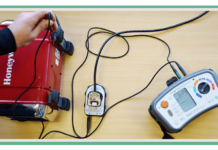When a family has a baby, parents encounter many problems. One of them is bloating and gas in a baby. The baby does not feel comfortable, is naughty, and does not sleep well. This condition affects both the health of the baby in general, and general stress in the family. After all, when the baby is awake, the parents can not rest.
Flatulence in a baby is a syndrome in which gas accumulates in the intestines and anxiety attacks occur. The causes of this condition are unknown to the end, even medics who believe that the main factor is the immaturity of the digestive system. According to various data, bloating occurs in 20-70% of children between the ages of 2 weeks to 6 months, regardless of gender.
How to detect gas in a baby’s body

Determining whether there is bloating in a newborn is not difficult at all. Here are some signs of gas that are easy to recognize:
- Sometime after feeding, the baby has colic, the main sign of which is flatulence. This condition is characterized by the accumulation of gasses in the infant’s intestines due to excessive gas or insufficient excretion of gasses from it;
- The baby’s stomach increases in volume, and his rumbling can be heard. It also becomes firm and rigid;
- The baby becomes restless and experiences abdominal discomfort;
- Crying, the shuddering of the legs, and reddening of the face begins;
- Accumulation of gas most often begins in the afternoon, closer to the evening;
- After the gas is cleared, the baby is relieved and the pain disappears.
If the child is disturbed by colic for more than 3-4 hours in a row, it is necessary to consult a doctor, because it may be something more serious than just gas.
Among the causes of flatulence, doctors single out the following: immaturity of the gastrointestinal tract, a lack of certain digestive enzymes, disorders of the child’s digestive system, and allergies to cow’s milk protein. Also, failure to follow the diet of a nursing mother – the use of foods that provoke excessive gas (baked goods, black bread, fatty foods, broccoli, cabbage, legumes, whole milk) can cause excessive gas.
Peculiarities of formula consumption by babies with tummy problems. How to transition from breast milk to formula?

In order to make the transition from breastmilk to formula without your baby’s health issues, you need to choose a formula that contains beta-palmitic fatty acid, prebiotics, and low lactose. Formulas containing partially broken down whey protein are easy to digest, will ease digestion, and reduce the risk of allergies. Therapeutic milk formula should contain less lactose than regular formula, as this reduces gas and eliminates flatulence.
When feeding formula, you can try to use adapted therapeutic ones, such as “Anti-colic” or “Comfort formula” from various baby food brands, using special bottles that reduce air entrapment.
To reduce the likelihood of problems with your baby’s tummy, follow the rules for preparing the formula:
- Wash your hands well and thoroughly wash and sterilize bottles and pacifiers before making formula;
- Boil just the right amount of water for baby food and cool it to 50-60 °C;
- Pour about half of the desired amount of water into a clean bottle;
- Using the measuring spoon in the packet, pour the desired amount of powder into the bottle;
- Always follow the recommended proportions of mixture and water. Remove the cream from the spoon with a knife;
- Close the bottle and shake thoroughly.
- Then add the rest of the water and shake the bottle again until the powder is completely dissolved;
- Cooldown the ready mixed formula to a feeding temperature of 36-37 °C: soak the bottle with the formula in a bowl of cold water for a few minutes or hold it under running cold water;
- Shake the bottle again and check the temperature of the finished formula on the back of your wrist;
- Do not reuse leftover formula after feeding;
Babies with excessive gas should not be overfed, because too much food aggravates these problems! If you notice the baby has severe colic, to relieve his suffering, you can massage the tummy and put a warm diaper on it. Before feeding, it is better to put the baby on your tummy for 10-15 minutes, it stimulates the digestive system. Some moms notice a good effect of a rocking chair, which calms the baby and encourages gas escape. At the same time, the baby should not be very hungry, because then he eats greedily and takes a lot of air, and this again causes increased gas.
It should be emphasized that if the child’s restlessness lasts all day, there is marked bloating, the infant refuses to eat a sufficient portion of food, loses weight, and there is a significant amount of mucus and blood in the feces, you should look for other causes. They may be related to disorders of enzyme systems, in particular a transient lack of lactase (an enzyme that breaks down the protein lactose, which is the basis of breast or cow’s milk), an allergy to cow’s milk. Sometimes the cause of increased fermentation and gas formation in the child’s intestines under the influence of pathogenic microflora.
Currently, there are many drugs that can improve the well-being of the child and eliminate the mother’s anxiety. However, the effectiveness of many of these drugs has not been proved, and they are not used in developed countries. The main groups of drugs that are recommended when needed are very limited. For the effect to be long-lasting, it is necessary to give these drugs at every feeding. There is no need to worry about side effects since this drug is not absorbed in the intestine.

When you reach one year of age, bloating occurs much less often than before. And if it occurs, it is worth analyzing the causes. To avoid flatulence, the child should follow a diet, eliminate gas-forming products from the diet, as well as establish normal bowel function. For this, the baby needs to drink enough water, and make sure it is of good quality. Also, prevention of flatulence is to eat small meals in small portions. The child should be taught to chew food well, eat slowly. In later life, this will contribute to good digestion. As for the drug treatment of excessive gas, it should be prescribed by a doctor. These may be enterosorbents, pre-and probiotics, antispasmodics, enzymes, and choleric agents, depending on the cause of flatulence. It is important to observe the daily routine, since even fatigue, lack of sleep, and stress can disrupt intestinal activity and provoke bloating in a child.
In general, bloating and colic are not dangerous for the health of the baby, but they almost always cause stress for parents. And as psychologists say, the worse the emotional state of the mother, the harder it is to calm the baby. So young parents should arm themselves with patience because it is the key to the easy transfer of the difficult period of the baby’s growth. In most cases, as the practice of many years shows, only time helps to get rid of tummy aches and pains in infants. Babies grow up very quickly, and in a few months, you will remember these moments with a smirk. So we wish you and your babies stable health, strong nerves, and a positive attitude toward any temporary adversity.






